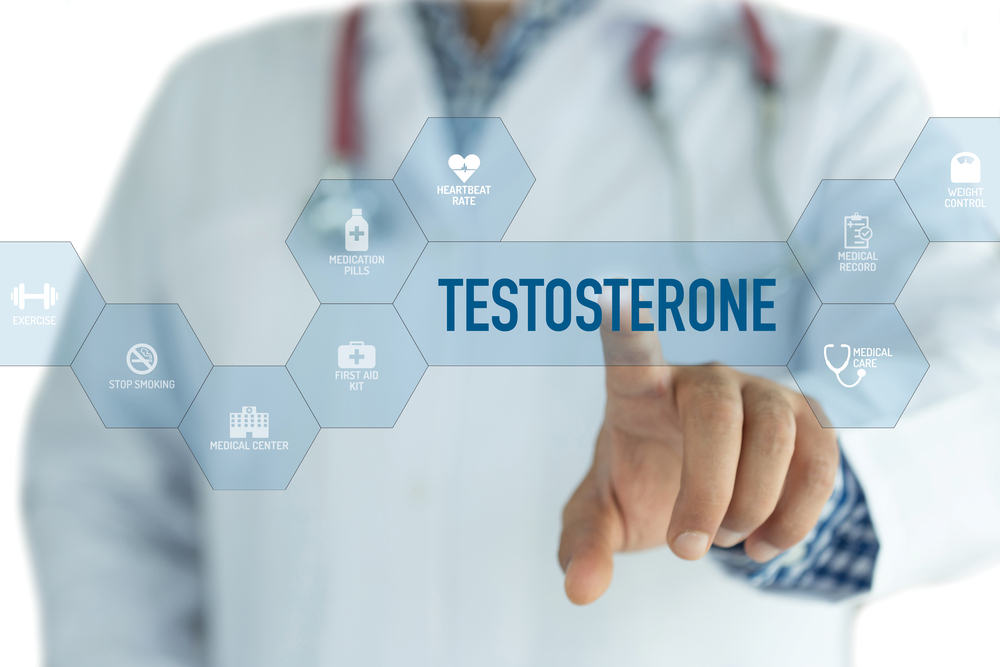An endocrinologist is a medical practitioner who specializes in hormone analysis and treatment. They focus on body tissues and glands that produce these hormones.
Dealing with low testosterone hormone in men is one of their areas of specialization. According to endocrinology, low testosterone can be primary or secondary. The low levels in this hormone are termed as hypogonadism.
How Can A Man Know He Has Low Testosterone?
The very first person to realize that something is not right in your body is you. That’s right. Why? Because you will realize some changes that were not there before. If your testosterone level is a primary cause, it may be difficult to note it through observation.
In secondary hypogonadism, symptoms of low testosterone include:

a. Loss of hair after some time
b. The testicles become smaller and softer
c. You start developing breasts
d. And also your muscles start getting thin with time
If these symptoms start showing, endocrinologists recommend a testosterone count test. This test is usually carried out in the morning. During this time, testosterone is at its highest. According to the US centers for disease prevention and control, these tests should be accurate. According to them, it is essential to carry some tests before getting to a conclusion.
Miscalculation of these levels may bring adverse effects. Especially when one starts undergoing treatment, they might get overdosed if the levels of this hormone are recorded as low while they are enough. When testosterone levels measure below 250 ng/dl, a man is said to have low testosterone.
Effects Of Low Testosterone In Men
Testosterone plays a vital role in a man. This hormone defines a man’s character. It determines his physical appearance through growth and development. It also dictates how he reacts to his environment and also how he relates to others. Thus, having low testosterone is a big blow to a man.
When a man has decreased testosterone, he is unable to control his moods. He gets irritable and loses his focus. In this situation, decision making for him becomes difficult. Also, he loses his desire for sex. He is no longer interested in his partner and considers other things more important.
His body psyche also changes. He starts accumulating fats around his belly, back neck, and arms. This accumulation makes him look unproportioned and even unappealing.
He starts experiencing tough times trying to achieve a full erection. Others are unable to make a single erection.
During intercourse, they are unable to complete a full round. Low testosterone levels make them get tired.
Men are also affected by wasting of bones. This condition does not affect women only. When testosterone levels are low in men, their bone starts wasting. This condition is known as osteoporosis. In this condition, bones get weak and cannot withstand harsh blows. As a result, a man gets prone to breaking his bones at slight falls.
Treating Low Testosterone
After being diagnosed with low testosterone, your endocrinologist will take the next step. They will start the treatment.
Although primary hypogonadism has no permanent solution, it has alternative solutions. These solutions are ideal for men who are concerned about getting children. Endocrinologists administer assisted reproduction treatment. This treatment is a form of technology. It has a variety of techniques that are combined to help in controlling this condition.
In secondary hypogonadism, endocrinologists may recommend:

a. Hormone replacement therapy
b. Radiation
c. Medication
d. Replacement of other hormones
Secondary hypogonadism may be caused by testes failure or by a pituitary tumor. When the cause is a failure of the testes, they use a testosterone replacement therapy. The American Association of Clinical Endocrinologists (AACE) and the American College of Endocrinology (ACE) advice that this therapy should only be administered to men who have undergone a thorough diagnosis.
According to a statement released by FDA in March 2018, endocrinologists should administer hormone therapy to aging men only. Also, those men whose testosterone levels have been affected by medical conditions were considered. These conditions should be approved through laboratory tests. Otherwise, men who do not fall under these two categories should be given alternative treatments.
After administering hormone replacement therapy, a medical follow up should be done. These tests aim at measuring the red blood cells count and the effect of the treatment in the cardio health. When undergoing this therapy, some patients may start developing excess red blood cells. Others may begin experiencing heart problems. The essence of the follow up is to make sure these effects are put under control.
Treating testosterone decrease caused by a pituitary tumor has several approaches. The endocrinologist can use medication, radiation or surgery depending on its size. Medication and radiation methods are used when the tumor is not significant. If it is big and is putting a man at risk, surgery becomes the best option.
Treating low testosterone can be a controversial topic. Some people may self-administer hormone boosting supplements like Male UltraCore. But, endocrinologists recommend first seeking medical attention. As seen above, testosterone levels may be caused by primary or secondary factors. There are also measures that determine whether your levels are okay or low.
These factors should not be taken with ease. You may consider using over the counter supplements, only to find no effect on you. According to endocrinologists, there is more to treating testosterone. It goes beyond eating over the counter supplementation. This treatment is a full phase that starts from diagnosis to post-treatment analysis. Each step of this treatment is crucial. It is monitored and cross-checked to confirm the results.







